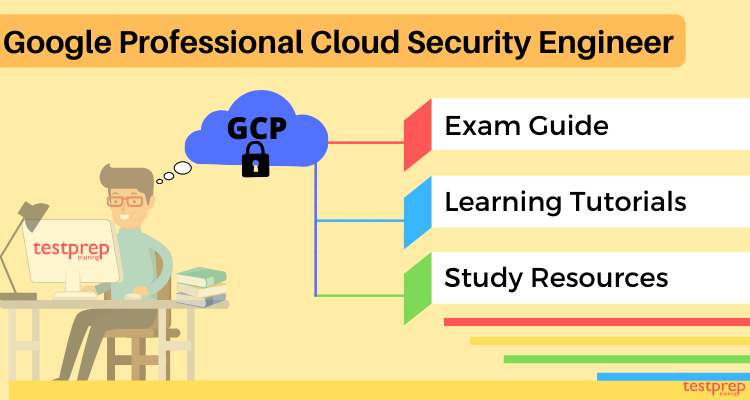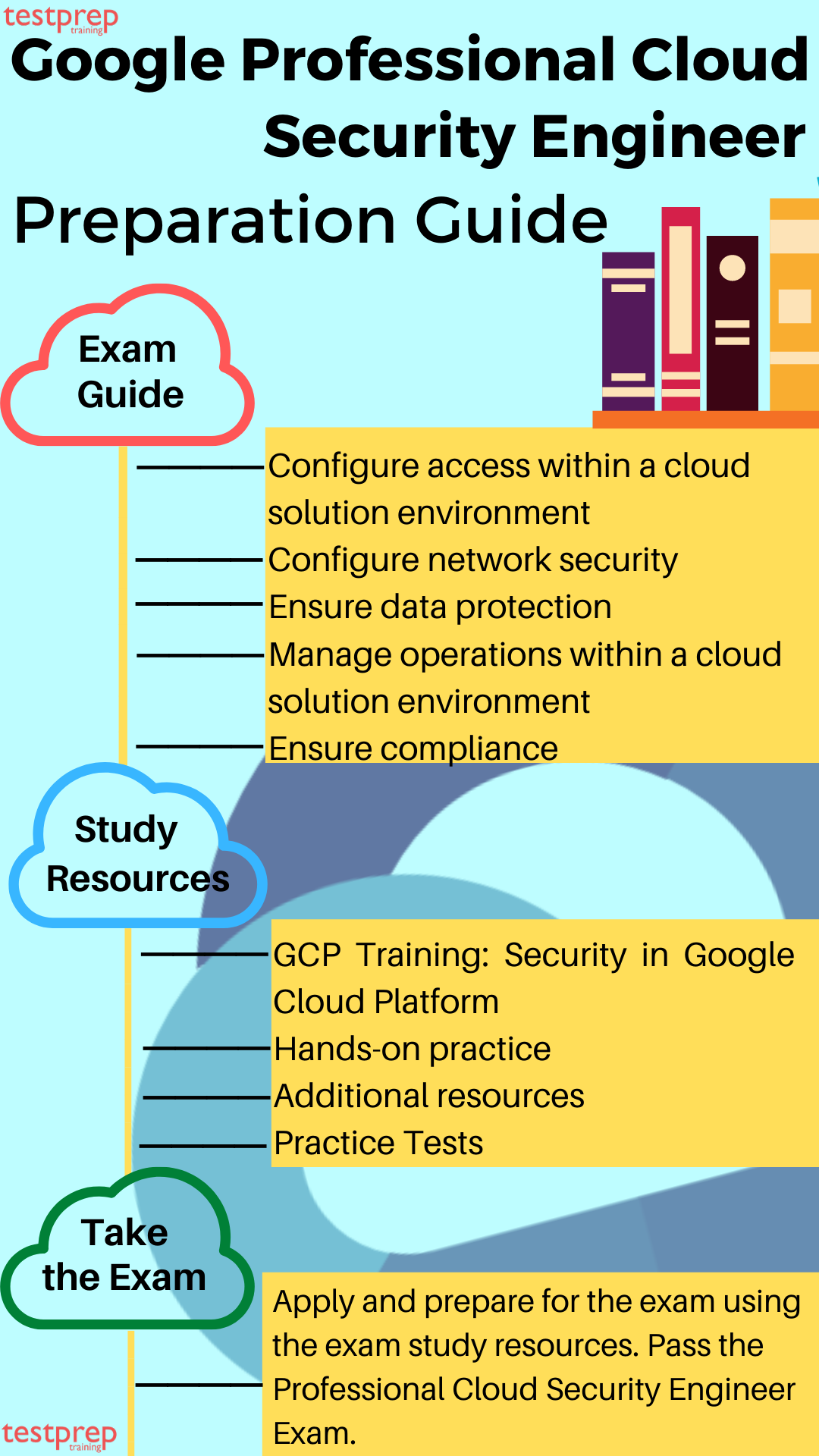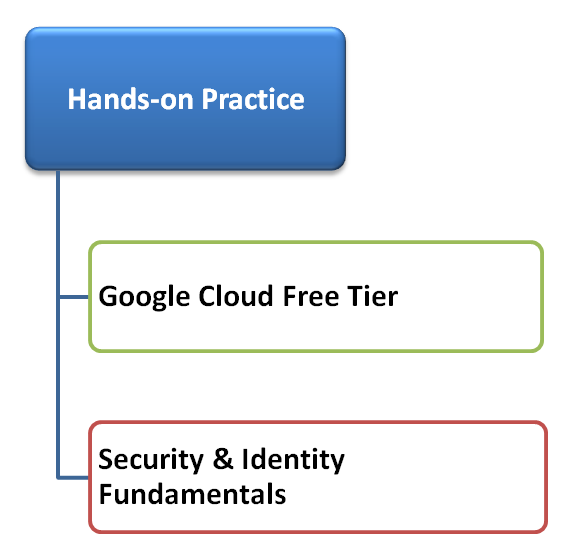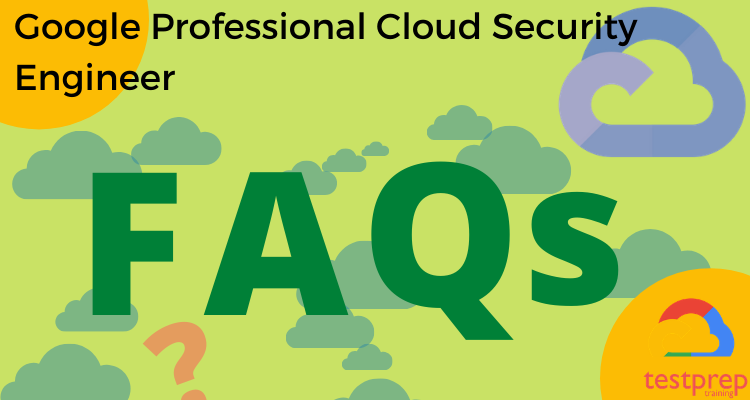Google Professional Cloud Security Engineer

The Google Professional Cloud Security Engineer certification is a professional-level certification offered by Google Cloud Platform (GCP). It is designed for individuals who have expertise in using GCP to design, develop, and manage secure infrastructure and applications.
To earn the certification, candidates must pass a two-part exam. The first part is a multiple-choice exam that covers foundational security concepts and best practices, as well as GCP-specific security tools and technologies. The second part is a practical exam that tests candidates’ ability to use GCP to design and implement secure solutions.
To prepare for the exam, candidates should have a deep understanding of security principles and best practices, as well as experience using GCP to implement secure solutions. Google offers several training resources, including online courses, documentation, and hands-on labs, to help candidates prepare for the exam.
Once certified, individuals can demonstrate their expertise in designing and managing secure solutions on GCP, which can be valuable for career advancement and attracting new clients.
Recommended Experience
Google recommends that candidates who are planning to take the exam should have at least three years of industry experience, including a minimum of one year of experience in designing and managing solutions using GCP.
Skills Validation
The Professional Cloud Security Engineer exam assesses the candidates ability in:
- Configuring access within a cloud solution environment
- Configuring network security
- Ensuring data protection
- Managing operations within a cloud solution environment
- Ensuring compliance
Google Professional Cloud Security Engineer Interview Questions
Practice and Prepare with the latest and updated Google Professional Cloud Security Engineer Interview Questions.

Professional Cloud Security Engineer Exam Details
Google Professional Cloud Security Engineer (GCP) exam will have both multiple select and multiple-choice type of questions. To complete this candidates will be given 2 hours during the exam. For this exam, candidates have to score 70% to get through the exam. However, the exam is available in the English language and it will cost you $200 USD.

Scheduling the exam
For Google Professional Cloud Security Engineer certification exam candidates have to go on the Official Google Cloud website.
- Candidates will need a Web assessor account.
- Create the account with your personal email address and not your work address.
- Check the catalogue and register for the exam you want to apply for.
- Choose the exam centre i.e. Kryterion Testing Centre.
- When you register for an exam, you will need to schedule an exam time at a Kryterion testing centre that is convenient for you.
Google Professional Cloud Security Practice Exam Questions
1. What is the purpose of a VPC peering connection in Google Cloud Platform?
A) To create a secure connection between two different VPC networks
B) To connect a VPC network to an on-premises network
C) To allow external access to a VPC network
D) To share resources between two different VPC networks
2. Which of the following encryption types does Google Cloud Storage use by default to encrypt objects at rest?
A) AES-128
B) RSA-2048
C) AES-256
D) RSA-4096
3. Which Google Cloud Identity and Access Management (IAM) role grants the ability to manage access control for Google Cloud resources at the project level?
A) Project Editor
B) Project Owner
C) Project Viewer
D) Project IAM Admin
4. Which tool in Google Cloud Security Command Center provides real-time threat detection and response?
A) Security Health Analytics
B) Container Security
C) Web Security Scanner
D) Event Threat Detection
5. Which of the following is not a best practice for securing Google Cloud Platform resources?
A) Use strong passwords and enable two-factor authentication (2FA)
B) Grant excessive permissions to users to minimize their access limitations
C) Use Google-managed SSL certificates for secure communication
D) Use VPC Service Controls to limit access to sensitive resources
Answers:
1. A) To create a secure connection between two different VPC networks
2. C) AES-256
3. B) Project Owner
4. D) Event Threat Detection
5. B) Grant excessive permissions to users to minimize their access limitations
It’s important to note that the actual exam questions may be different from these sample questions, and Google recommends reviewing their official study materials for a comprehensive understanding of the exam topics.
Course Structure
Google Professional Cloud Security Engineer Course covers the following domains:
Topic 1: Configuring access within a cloud solution environment
1.1 Configuring Cloud Identity.
- Configuring Google Cloud Directory Sync and third-party connectors
- Management of super administrator account (Google Documentation: Super administrator account best practices, Creating and managing organizations)
- Automating the user lifecycle management process
- Administering user accounts and groups programmatically
1.2 Managing service accounts. Considerations include:
- Protecting and auditing service accounts and keys (Google Documentation: Audit logs for service accounts, Understanding service accounts)
- Automating the rotation of user-managed service account keys (Google Documentation: Understanding service accounts)
- Identification of scenarios requiring service accounts (Google Documentation: Understanding service accounts, Service accounts)
- Creating, disabling, authorizing, and securing service accounts (Google Documentation: Understanding service accounts, Service accounts)
- Configuring workload identity federation
- Securing default service accounts
- Managing service account impersonation
1.3 Managing authentication.
- Creating a password policy for user accounts (Google Documentation: Enforce and monitor users’ password requirements)
- Setting up Security Assertion Markup Language (SAML) and OAuth (Google Documentation: Signing in users with SAML)
- Configuring and enforcing two-factor authentication (Google Documentation: Multi-factor authentication (MFA))
1.4 Managing and implementing authorization controls. Considerations include:
- Managing privileged roles and separation of duties with Identity and Access Management (IAM) roles and permissions
- Granting permissions to different types of identities (Google Documentation: IAM Overview)
- Managing IAM and access control list (ACL) permissions
- Designing identity roles at the organization, folder, project, and resource level
- Configuring Access Context Manager
- Applying Policy Intelligence for better permission management
- Managing permissions through groups
1.5 Defining resource hierarchy.
- Creating and managing organizations (Google Documentation: Creating and managing organizations)
- Managing organization policies for organization folders, projects, and resources
- Using resource hierarchy for access control and permissions inheritance (Google Documentation: Using resource hierarchy for access control)
Topic 2: Configuring perimeter and boundary security
2.1 Designing perimeter security. Considerations include:
- Configuring network perimeter controls (firewall rules, hierarchical firewalls, Identity-Aware Proxy [IAP], load balancers, and Certificate Authority Service)
- Identifying differences between private and public addressing
- Configuring web application firewall (Google Cloud Armor)
- Configuring Cloud DNS security settings
2.2 Configuring boundary segmentation. Considerations include:
- Configuring security properties of a VPC network, VPC peering, Shared VPC, and firewall rules
- Configuring network isolation and data encapsulation for N-tier application design
- Configuring VPC Service Controls
2.3 Establish private connectivity.
- Private RFC1918 connectivity between VPC networks and GCP projects (Shared VPC, VPC peering) (Google Documentation: VPC Network Peering overview, Using VPC Network Peering)
- Designing and configuring private connectivity between VPC networks and Google Cloud projects (Shared VPC, VPC peering, and Private Google Access for on-premises hosts)
- Designing and configuring private connectivity between data centers and VPC network (IPsec and Cloud Interconnect)
- Establishing private connectivity between VPC and Google APIs (Private Google Access, restricted Google access, Private Google Access for on-premises hosts, Private Service Connect) (Google Documentation: Configuring Private Google Access, Private access options for services)
- Using Cloud NAT to enable outbound traffic
Topic 3: Ensuring data protection
3.1 Protecting sensitive data and preventing data loss. Considerations include:
- Identifying and redaction of PII (Google Documentation: Classification, redaction, and de-identification, De-identifying sensitive data)
- Configuring pseudonymization
- Configuring format-preserving substitution
- Restricting access to BigQuery, Cloud Storage, and Cloud SQL datastores
- Securing secrets with Secret Manager
- Protecting and managing compute instance metadata
3.2 Managing encryption at rest, in transit, and in use. Considerations include:
- Understanding the use cases for Google default encryption, customer-managed encryption keys (CMEK) including customer-supplied encryption keys (CSEK), Cloud External Key Manager (EKM), and Cloud HSM (Google Documentation: Encrypt disks with customer-supplied encryption keys, Customer-Supplied Encryption Keys, Customer managed encryption keys (CMEK))
- Creating and managing encryption keys for CMEK, CSEK, and EKM
- Applying Google’s encryption approach to use cases
- Configuring object lifecycle policies for Cloud Storage
- Enabling Confidential Computing
- Encryption in transit
Topic 4: Managing operations within a cloud solution environment
4.1 Building and deploying secure infrastructure and applications. Considerations include:
- Automating security scanning for Common Vulnerabilities and Exposures (CVEs) through a continuous integration and delivery (CI/CD) pipeline
- Automating virtual machine image creation, hardening, maintenance, and patch management
- Automating container image creation, verification, hardening, maintenance, and patch management
- Automating policy as code and drift detection
4.2 Configuring logging, monitoring, and detection. Considerations include:
- Configuring and analyzing network logs (firewall rule logs, VPC flow logs, packet mirroring, Cloud Intrusion Detection System [Cloud IDS])
- Designing an effective logging strategy
- Logging, monitoring, responding to, and remediating security incidents
- Exporting logs to external security systems
- Configuring and analyzing Google Cloud audit logs and data access logs
- Configuring log exports (log sinks and aggregated sinks)
- Configuring and monitoring Security Command Center (Security Health Analytics, Event Threat Detection, Container Threat Detection, Web Security Scanner)
Topic 5: Supporting compliance requirements
5.1 Determining regulatory requirements for the cloud. Considerations include:
- Determining concerns relative to compute, data, and network
- Evaluating the security shared responsibility model (Access Transparency)
- Configuring security controls within cloud environments (regionalization of data and services)
- Limiting compute and data for regulatory compliance
- Determining the Google Cloud environment in scope for regulatory compliance
Exam Policies
Google Cloud Certification provides exam policies to support the candidates by providing every detail related to the certification program. On this page, the candidates will get information about after the exam or before exam procedures. This includes:
Maintaining Google Cloud Certification
To maintain certification candidates must recertify their certification status. As all Google Cloud certifications are valid for two years from the date certified. So, you may attempt recertification starting 60 days prior to your certification expiration date. Any attempt to recertify or attempt the same exam while currently certified before this time period will result in a rejected attempt, forfeiture of any exam fees paid, possible revocation of your current certification as well as any other Google Cloud certifications, and possible suspension from the Google Certification Program.
Google Cloud Exam Retake Policy
Candidates who do not pass the exam on their first attempt must wait for a minimum of fourteen days before they can retake it. If they do not pass on their second attempt, they must wait for at least sixty days before retaking the exam. If they fail for a third time, they must wait for at least one year before attempting to retake the exam.
For More Queries Visit: Google Professional Cloud Security Engineer Exam FAQs
Preparation Guide for Professional Cloud Security Engineer Exam
Preparing for an exam is tough. It gets easy when you follow a guide. Here is the Google Professional Cloud Security Engineer Study Guide to set you on the right track for your certification:

1. Google Professional Cloud Security Engineer Training
Google provides training to candidates with the Security in Google Cloud Platform course. This course gives candidates a good understanding of the security controls and techniques on Google Cloud Platform. This provides lectures, demonstrations, and hands-on labs and helps candidates to explore and deploy the components of a secure Google Cloud solution. This will also help in learning mitigation techniques for attacks at many points in a Google Cloud-based infrastructure, including Distributed Denial-of-Service attacks, phishing attacks, and threats involving content classification and use. Candidates in this course will:
- Understand the Google approach to security Managing administrative identities using Cloud Identity.
- Implement administrative access using Google Cloud Resource Manager, Cloud IAM.
- They will implement IP traffic controls using VPC firewalls and Cloud Armor.
2. Hands-on practice
The Professional Cloud Security Engineer exam assesses candidates’ technical proficiency in areas relevant to their job function. Therefore, candidates must have practical experience to adequately prepare for the exam. To assist candidates in gaining practical experience, Google Cloud offers hands-on labs through Qwiklabs. Additionally, Google Cloud provides the following resources to help candidates enhance their skills and knowledge:

- Google Cloud Free Tier
- The Google Cloud Free Tier gives candidates free resources to learn about Google Cloud services by trying them on your own. This is for both beginner and professionals who need to learn the basics, or you’re an established customer and want to experiment with new solutions, the Google Cloud Free Tier has you covered.
- Security & Identity Fundamentals
- Security is an inflexible feature of Google Cloud Platform services. However, GCP has developed specific tools for ensuring safety and identity across your projects. In Security and Identity Fundamental, candidates will get hands-on practice with GCP’s Identity and Access Management (IAM) service, which is the go-to for managing user and virtual machine accounts. They will get experience with network security by provisioning VPCs and VPNs, and learn what tools are available for security threat and data loss protections.
3. Additional resources
Hands-on labs: Networking in the Google Cloud
Cloud computing revolves around networking, which forms the foundation of Google Cloud, allowing all resources and services to interconnect. The importance of networking in Google Cloud is highlighted, and candidates can gain practical experience in essential networking services and specialized tools for building advanced networks. The course will also cover VPCs, enabling the creation of high-performance load balancers for enterprise-grade applications. By taking this course, candidates can acquire practical knowledge and skills necessary for building resilient networks right away.
4. Practice Tests
Preparing for the exam can be greatly enhanced by taking Google Professional Cloud Security Engineer Practice Exams. These tests help candidates identify their strengths and weaknesses, allowing them to focus on areas that require more attention. Through practice, candidates can improve their answering skills, ultimately saving valuable exam time. It is recommended to start practicing after completing each topic, as this provides a revision opportunity. Finding high-quality practice sources is critical to achieving success on the exam.
Start preparing for Google Professional Cloud Security Engineer Exam Now!


